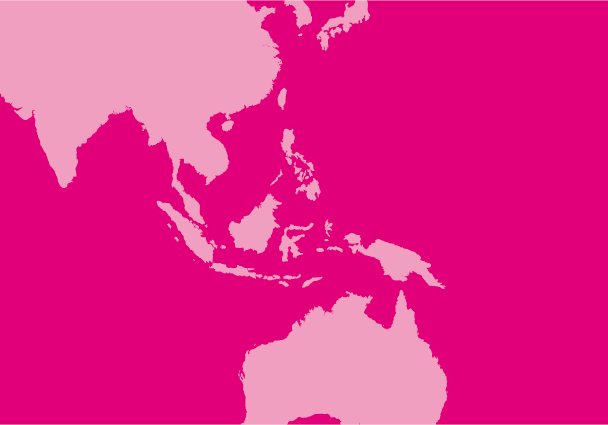
Mar 22, 2013 | News
Indonesia’s resumption of the death penalty after a four-year moratorium is a major setback for the country’s human rights record, the ICJ said today.
Indonesia executed Adami Wilson Bin Adam on 15 March 2013. After the execution, Indonesia’s Attorney General Basrief Arief announced that the government was set to execute nine more convicts this year.
“The Indonesian government should immediately reverse its decision to proceed with more executions in defiance of global trends toward the abolition of the death penalty,” said Emerlynne Gil, ICJ’s International Legal Advisor for Southeast Asia in Bangkok. “At least 150 countries have now either abolished the death penalty or instituted an official or unofficial moratorium. There is a growing understanding around the world that the death penalty is an unacceptable assault on rights and dignity.”
Adami Wilson Bin Adam was convicted in 2004 for smuggling one kilogram of heroin into the country. In Indonesia, the law prescribes the penalty of death for trafficking narcotics.
During its Universal Periodic Review (UPR) in 2012 at the UN Human Rights Council, Indonesia rejected recommendations to abolish the death penalty or establish a moratorium on executions.
In its reply, the Government of Indonesia said that death penalty is imposed “selectively only for serious crimes.” However, the UN Special Rapporteur on extrajudicial, summary or arbitrary executions, in his report, emphasized that “the death penalty should be eliminated for crimes such as economic crimes and drug-related offences.”
Indonesia last carried out executions four years ago. In 2008 it executed three men convicted of the 2002 Bali bombings.
“This execution undermines Indonesia’s repeated efforts to position itself as a regional human rights leader,” Gil added. “Its resumption of executions is indeed a very grave setback not only for Indonesia, but also for the region and ASEAN, the Association of South East Asia Nations.”
The ICJ says that use of the death penalty violates the right to life and the right not to be subjected to cruel, inhuman, or degrading treatment or punishment.
Last November 2012, the UN General Assembly issued a resolution calling on all Member States to establish a moratorium on executions with a view to abolishing the death penalty.
The resolution was adopted by an overwhelming number of votes from Member States. Indonesia abstained from the vote.
The ICJ calls Indonesia to immediately ratify the 2nd Optional Protocol to the International Covenant on Civil and Political Rights, which obligates State Parties to take all necessary measures to abolish the death penalty.
In the immediate term, the country should implement a moratorium on the practice, the ICJ adds.
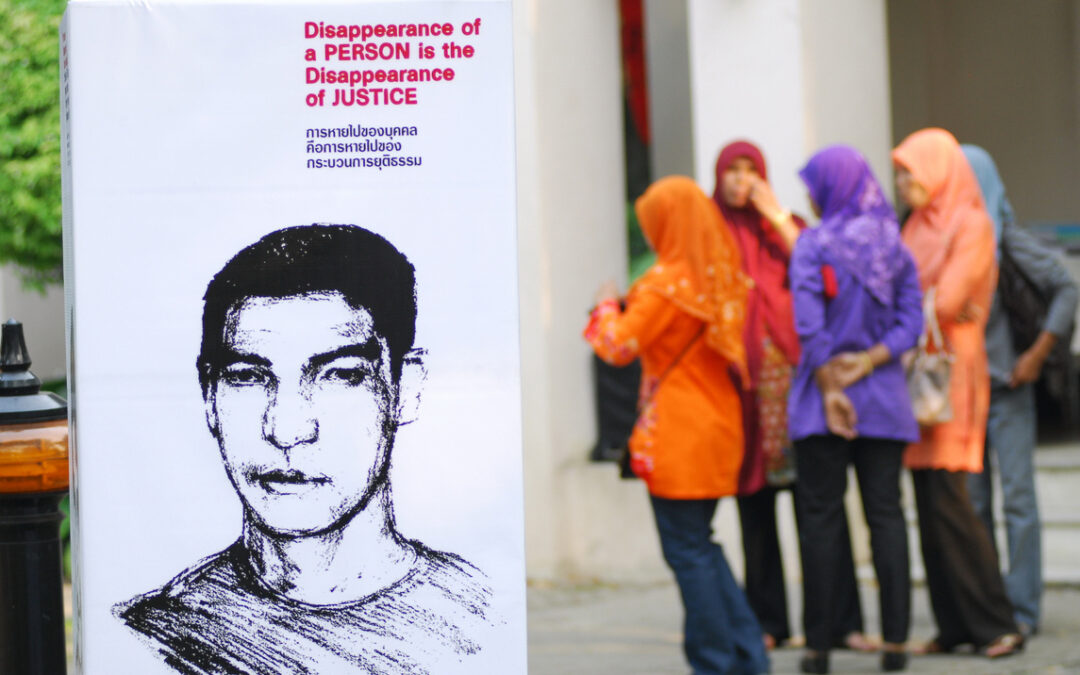
Mar 22, 2013 | Feature articles, News
The inclusion of an amnesty provision, which could cover the worst possible crimes, in Nepal’s new Truth, Reconciliation and Disappearance Ordinance, will make it impossible for thousands of victims of gross human rights violations to obtain justice, ICJ and other right groups said today.
The Asian Centre for Human Rights, Human Rights Watch, the International Commission of Jurists and TRIAL pointed to fundamental flaws in Nepal’s new law, passed by President Ram Baran Yadav on March 14, 2013.
“The new ordinance leaves open the door to amnesties for persons implicated in gross human rights violations and crimes under international law,” said Ben Schonveld, ICJ’s South Asia director in Kathmandu. “Amnesties for serious rights violations are prohibited under international law and betray the victims, who would be denied justice in the name of political expediency.”
At least 13,000 people were killed and over 1,300 subjected to enforced disappearance in Nepal’s decade-long conflict between government forces and Communist Party of Nepal (Maoist) combatants.
The fighting ended with the signing of the 2006 Comprehensive Peace Agreement, consolidating a series of commitments to human rights.
However, the government has yet to take steps to ensure that those responsible for crimes under international law during the fighting are identified and prosecuted.
International and local human rights groups have consistently decried the government’s efforts to side-step promises of justice and accountability, represented most recently by this new ordinance.
The revised ordinance calls for the formation of a high-level commission to investigate serious human rights violations committed during Nepal’s armed conflict from 1996 to 2006.
It grants the commission discretion to recommend amnesty for a perpetrator if the grounds for that determination are deemed reasonable.
The government then decides whether to grant an amnesty. There is no definition of what is reasonable.
Confusion over scope of amnesty provision
The ordinance states that “serious crimes,” including rape, cannot be recommended for an amnesty, but it does not define what other “serious crimes” are not subject to an amnesty.
Gross violations of human rights, such as extrajudicial killing, torture and enforced disappearance, are not mentioned.
Torture and enforced disappearance are not specific crimes under Nepali domestic criminal law.
The organizations expressed concern that the commission’s powers to recommend prosecution may mean little without crimes being adequately defined in law.
The final decision on whether to prosecute can only be made by the attorney general, a political appointee of the government, instead of an independent entity.
Human Rights Watch, ICJ and TRIAL have previously documented the systematic failures of the Nepali criminal law system to address serious human rights violations.
“Nepal has had years to investigate some 1,300 suspected enforced disappearances during the conflict and thousands of other human rights violations, but it has failed to deliver any credible or effective investigations,” said TRIAL Director Philip Grant in Geneva. “The provisions on prosecution contained in this ordinance don’t appear to be strong enough to overcome Nepal’s entrenched practices of safeguarding impunity by withdrawing cases or failing to pursue credible allegations. It does not leave victims with much faith that the commission will fulfill its mandate to end impunity.”
Call for review and consultation
The organizations called upon the government to establish a mechanism to review and amend the legislation in consultation with victims of human rights abuses and representatives of civil society.
“This ordinance was signed by the prime minister and president in record time without any consultation with conflict victims and civil society,” Schonveld added. “If the government had carried out proper consultations, the result would have been different, and we wouldn’t have an ordinance that entrenches impunity.”
The rights organizations also expressed concern about the ordinance’s heavy emphasis on reconciliation at the possible expense of justice for victims.
The ordinance cedes authority to the commission to implement “inter-personal reconciliation” between victim and perpetrator, even if neither the victim nor the perpetrator requests it, which could result in pressure being placed on a victim to give up any claims against a perpetrator.
Although the ordinance mentions the need for victim and witness protection, there are no specific safeguards to ensure the safety and security of victims who become involved in reconciliation processes.
Violation of international obligation for political expediency
Under international law, Nepal is obliged to take effective measures to protect human rights, including the right to life and freedom from torture and other ill-treatment.
Where a violation occurs, Nepali authorities must investigate, institute criminal proceedings, and ensure victims are afforded access to effective remedy and reparations.
“The passage of this ordinance is just the latest example of the Nepali government’s cynical willingness to trade meaningful justice and accountability for political expediency,” said Brad Adams, Asia director at Human Rights Watch. “The government is kidding itself if it thinks it can ignore the voices of Nepal’s thousands of victims of human rights abuses. Nepal needs meaningful government initiatives to address its human rights problems, not the veneer of justice that this flawed ordinance represents.”
Contact:
In Kathmandu, for ICJ, Ben Schonveld: ben.schonveld(at)icj.org
In Bangkok, for ICJ, Sheila Varadan: +66-857-200-723; sheila.varadan(at)icj.org
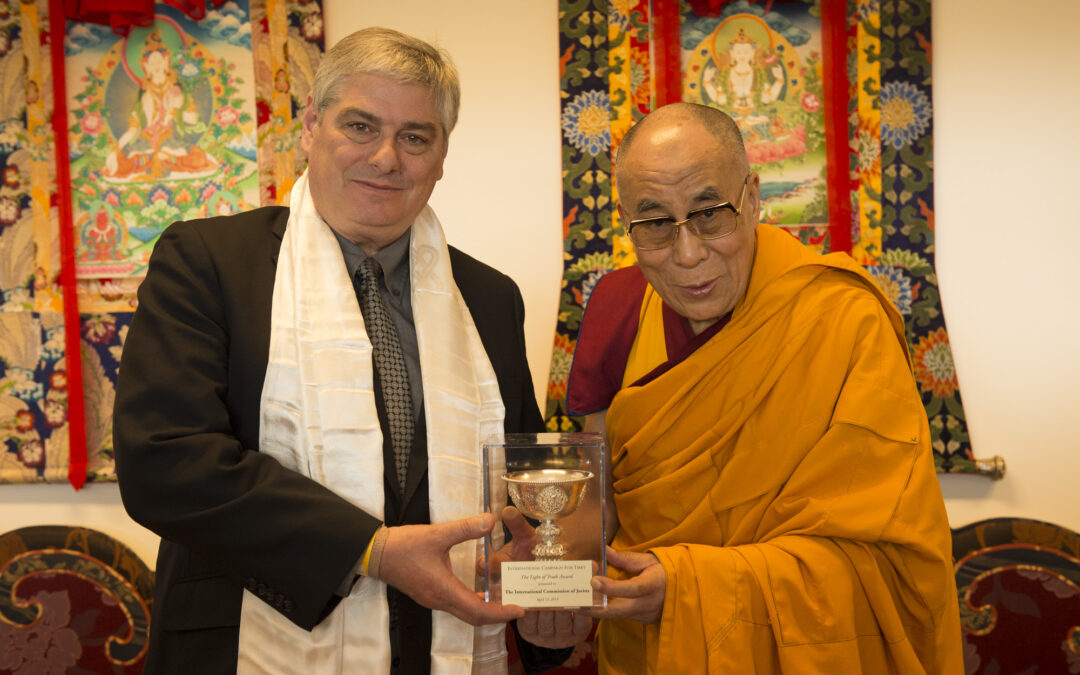
Mar 22, 2013 | News
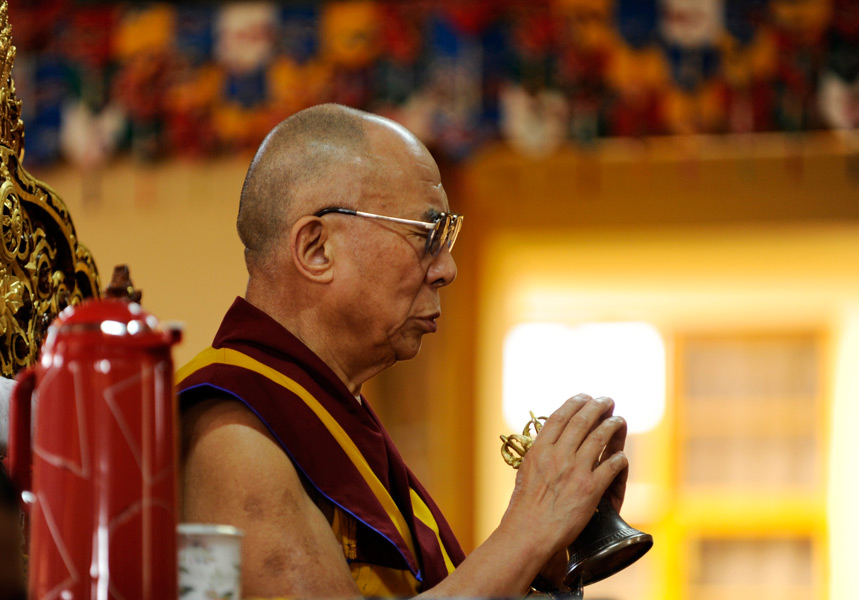 The Dalai Lama and the International Campaign for Tibet (ICT) will honour the ICJ with the Light of Truth Award in recognition of the organization’s consistent support of the Tibetan cause over six decades.
The Dalai Lama and the International Campaign for Tibet (ICT) will honour the ICJ with the Light of Truth Award in recognition of the organization’s consistent support of the Tibetan cause over six decades.
The Award will be presented to ICJ Secretary-General Wilder Tayler at a ceremony in Fribourg, Switzerland, on 13 April 2013.
The ICT presents the Light of Truth Award to individuals and institutions who have made significant contributions to the public understanding of Tibet and the struggle for human rights and democratic freedoms for the Tibetan people.
The award itself is an antique Tibetan butter lamp, symbolizing the light that each recipient has shed on the Tibet issue.
In addition to the ICJ, there will be four other Light of Truth Awardees in 2013, including ICJ Honorary Member Theo van Boven. Professor van Boven is a Dutch jurist and professor emeritus in international law, a former UN Rapporteur on Torture and served as ICJ Vice-President in the 1990s. He will be awarded for putting the spotlight on Tibet within and beyond the United Nations system.
Other honorees include Professor Dr. Christian Schwarz-Schilling, former German Minister and Parliamentarian, who has been working in a low-key manner for many years on the issue of the Tibetan-Chinese relationship; Ms. Sigrid Joss-Arnd, the longest-standing member of the Swiss Red Cross officials who was involved in helping Tibetans in the diaspora from the early 1960s; and Mr. Robert Ford, CBE, for his tireless advocacy on Tibet for more than half a century. Mr Ford is the only Westerner who was given official ranking in the Tibetan government before 1950 and he was imprisoned by the Chinese authorities for nearly five years.
The Light of Truth Award is the most prestigious award in the Tibet movement and has been presented by His Holiness the Dalai Lama, on behalf of the ICT, for many years.
Previous recipients include Archbishop Desmond Tutu, the late Václav Havel, Chinese scholar and writer Wang Lixiong, and film director Martin Scorsese.
At the ceremony, French politician and doctor Bernard Kouchner, former Minister in the French government and co-founder of the international humanitarian organization Médecins Sans Frontières/Doctors Without Borders (MSF) will introduce the Dalai Lama.
Photo/Phuntsog/Namgyal Archive
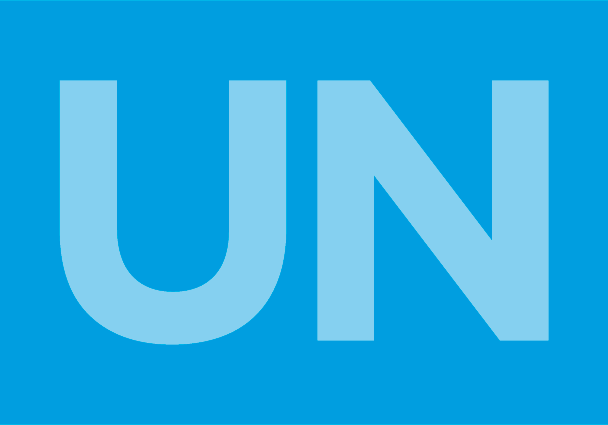
Mar 22, 2013 | News
The ICJ, the World Organisation Against Torture (OMCT) and Geneva for Human Rights are encouraged by steps taken by Taiwan to review compliance with human rights and urge further steps towards the realization of rights on the ground.
Due to the fact that the territory of Taiwan is not recognized by the international community as a sovereign State, Taiwan is not a member of the United Nations.
As such, the UN HUman Rights Committee and Committee on Economic, Social and Cultural Rights have been unable to review Taiwan’s implementation of the International Covenant on Civil and Political Rights and the International Covenant on Economic, Social and Cultural Rights, in respect of which Taiwan has enacted incorporating legislation.
Notwithstanding this position, the Government of Taiwan has facilitated a parallel review by independent experts of implementation of these instruments.
This review was conducted on 25-27 February 2013, leading to the adoption by the independent experts of concluding observations and recommendations.
The ICJ, OMCT and Geneva for Human Rights are encouraged by the steps taken.
They urge the Government of Taiwan to undertake prompt and effective steps towards implementation of the recommendations of the independent experts by means that involve a constructive dialogue with civil society, including as this pertains to the abolition of the death penalty.
They also call on the Government to take similar steps for incorporation of human rights standards set out in other universal treaties, including the Convention against Torture.
Taiwan-ICCPR-ICESCR-Conclusions-IndependentExperts-2013 (download concluding observations of the independent experts)
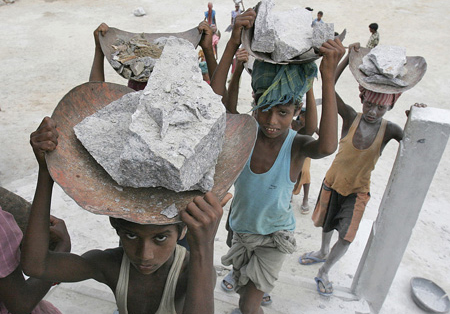
Mar 21, 2013 | News
The ICJ welcomes the adoption by the UN Committee on the Rights of the Child of a General comment on State obligations regarding the impact of the business sector on children’s rights.
The ICJ stresses the Committee is the first UN human rights treaty body to address this issue directly in a General comment.
“The Committee on the Rights of the Child has taken a decisive step in clarifying standards under the Convention on the Rights of the Child and providing much needed guidance for States to better protect the rights of the child against business abuse,” said Carlos Lopez, ICJ’s Senior Legal Adviser on Business and Human Rights.
The UN Committee recognizes that while there is no international legally binding instrument on the business sector’s responsibilities vis-à-vis human rights, “duties and responsibilities to respect the rights of children extend in practice beyond the State and State-controlled services and institutions and apply to private actors and business enterprises. Therefore all businesses must meet their responsibilities regarding children’s rights and States must ensure they do so.”
The UN Committee also acknowledges that voluntary actions of corporate responsibility by business enterprises are not a substitute for State action and regulation of businesses or for businesses to comply with their responsibilities to respect children’s rights.
The General Comment was elaborated through a consultative process over nearly two years with the support of the ICJ, UNICEF and Save the Children International.
It gives interpretation and guidance for States in key areas:
- how they should ensure that the activities and operations of business enterprises do not adversely impact on children’s rights;
- how to create an enabling and supportive environment for business enterprises to respect children’s rights across their local or global operations; and
- how to ensure access to effective remedy for children whose rights have been infringed by a business enterprises.
“The recommendations and guidance provided by the Committee are a key contribution to national and international strategies by States and other actors,” Lopez added. “States now need implement these recommendations.”
BHR-FINAL CRC GC 16-comment-2013 (full text in pdf)
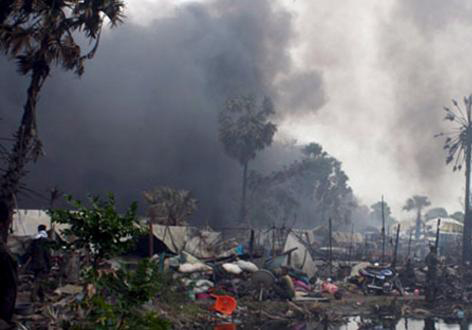
Mar 21, 2013 | News
A resolution adopted today by the UN Human Rights Council highlights the Sri Lankan Government’s ongoing failure to provide accountability for serious violations of human rights and the laws of war, the ICJ said.
“The ICJ welcomes this resolution as it underscores the international community’s continuing concern about the horrific atrocities committed by all sides to the Sri Lankan conflict,” said Alex Conte, Director of ICJ’s International Law and Protection Programmes. “The UN, as well as the Commonwealth and other international organizations interested in helping the Sri Lankan people, should now press and assist the Sri Lankan Government to show tangible implementation of their oft-repeated promises.”
Twenty-five States supported the resolution, following from a similar resolution adopted by the Council on Sri Lanka last year.
The resolution reiterates the need for the Sri Lankan Government to demonstrate tangible steps to ensure accountability for violations of human rights and the laws of war, especially during the final months of the three-decade long conflict in 2009.
In particular, the resolution calls on the Sri Lankan Government to implement the recommendations of its own Lessons Learnt and Reconciliation Commission (LLRC).
The LLRC was widely criticized by Sri Lankan civil society as well as international observers as falling short of international standards of providing accountability.
“Sri Lanka has a long history of promising justice but delivering impunity, and the LLRC is only the most recent example of that. With this resolution, the international community shows it wants to see concrete action,” Conte added. “Not only has the Sri Lankan Government not addressed the violations of the past, but there are strong indications that the rule of law has significantly deteriorated.”
The resolution notes with concern the ongoing reports of human rights violations being committed with impunity in Sri Lanka, including enforced disappearances, extrajudicial killings and torture.
In October 2012, the ICJ released a 150-page report Authority without Accountability: The Crisis of Impunity in Sri Lanka, documenting the systematic erosion of accountability mechanisms in Sri Lanka.
In recent months, Sri Lanka’s Government has stepped up its assaults on the independent functioning of the judiciary. In particular, the country’s Chief Justice was removed from office after she had challenged the legality of Government efforts to consolidate authority. The heavily politicized impeachment process was declared unconstitutional by the Supreme Court of Sri Lanka and was inconsistent with international human rights law and standards.
“In light of this resolution and the situation in Sri Lanka, the Commonwealth should change its plans to hold the 2013 Commonwealth Heads of Government Meeting in Colombo,” said Conte. “Sri Lanka has demonstrated its rejection of the Commonwealth Principles, notably democracy, the independence of the judiciary and human rights. This will no doubt be further confirmed when the High Commissioner for Human Rights presents her oral update to the Human Rights Council in September this year, just two months ahead of the scheduled Heads of Government Meeting.”
The ICJ has urged the Commonwealth Ministerial Action Group (CMAG), which meets next month, to address the human rights situation in Sri Lanka with the objective of removing its right to host the Heads of Government Meeting.
CONTACT:
Sam Zarifi, ICJ Asia-Pacific Regional Director, (Bangkok); t:+66(0) 807819002; email: sam.zarifi(at)icj.org
Sheila Varadan, ICJ Legal Advisor, South Asia Programme (Bangkok); t: +66 857200723; email: sheila.varadan(at)icj.org
NOTES:
- The resolution of the Council was adopted by 25 votes in favor, 13 against and 8 abstentions (with Congo, Ecuador, Indonesia, Kuweit, Maldives, Mauritania, Pakistan, Philippines, Qatar, Thailand, Uganda, United Arab Emirates and Venezuela voting against; and Angola, Botswana, Burkina Faso, Ethiopia, Japan, Kazakhstan, Kenya, Malaysia abstaining)
- The resolution was led by the United States of America and co-sponsored by Austria, Canada, Estonia, Germany, Ireland, Italy, Montenegro, Poland, Romania, Spain, and Switzerland; as well as by the following non-member States of the Council: Belgium, Bulgaria, Croatia, Denmark, Finland, France, Georgia, Greece, Hungary, Iceland, Liechtenstein, Lithuania, Malta, Monaco, Norway, Portugal, Saint Kitss and Nevis, Slovakia, Slovenia, Sweden and the United Kingdom of Great Britain and Northern Ireland.
- In January 2012, Chief Justice Dr Shirani Bandaranayake was removed in an impeachment process that violated international standards of due process and was declared unconstitutional by the Supreme Court. The impeachment was widely condemned internationally. The ICJ issued a letter supported by fifty-six senior jurists from over thirty countries worldwide.
RELATED ARTICLES:
Open letter: Sri Lanka should not host the 2013 Commonwealth Heads of Government Meeting
ICJ calls for International Commission of Inquiry on accountability in Sri Lanka
The International Commission of Jurists welcomes key Human Rights Council resolution on Sri Lanka
Sri Lanka: judges around the world condemn impeachment of Chief Justice Dr Shirani Bandaranayake











